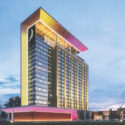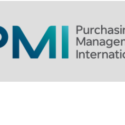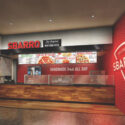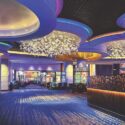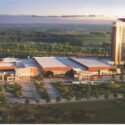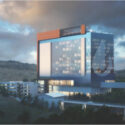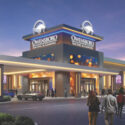The current economy has had a devastating impact on the gaming industry. This year, we’ve gathered 19 architects, designers, builders and casino executives who explain how they plan to survive (and, for some, thrive) during these challenging times.
They will explain how their companies plan to gain significant market share when the economy improves. Where and how their companies are spending precious resources to improve service, design and other professional skills. How they add value to their clients and customers, and how some operators have aggressively expanded their customer base. Why some believe mega-resorts will remain strong while others see something different on the horizon.
There are many commonly shared insights from this leadership group worth noting. Many of the companies have survived other economic downturns and are, once again, adjusting their businesses accordingly (staff reductions, fine-tuning their sound business practices, diversifying their product types, keeping expenses down and cash flow stable). Most believe that Indian gaming will remain active, with local casinos starting to design and plan for new developments. There are also divergent opinions about the look and feel of mega-resorts and their viability as a venue into the future. At least one company is actually experiencing an incredibly profitable, best-ever year, and at least one firm’s leaders have opened their minds to explore design/build relationships.
Some say gaming will never be what it has been for the last 15 years or so. What is true is that we provide an escape from the humdrum of everyday. Our customers enjoy, if not yearn for, the entertainment experience we all design, build and operate-and shall do so into the future.
My thanks to all who took the time from their busy schedules to send us the responses to our questions.
-Julie Brinkerhoff Jacobs
Casino Design: As a gaming professional, what actions are you taking to survive (and possibly thrive) through this challenging business cycle? Are you reinventing your company or yourself to meet the current business climate?
JOEL BERGMAN: Inasmuch as several projects have not gone forward, BWA has taken the opportunity to re-evaluate its entire staffing needs. We have streamlined our production teams to be more efficient; we have increased a number of Revitt-competent teams; and, we have increased internal educational programs so as the economic and business environment changes, BWA will be poised to meet not only the current economic and business climate, but also the future business climate. Fortunately, BWA has several ongoing client relationships which have helped us through the current business cycle.
DON BRINKERHOFF: We are doing some incidental gaming remodels and additions on projects supplemental to existing facilities. We have also tightened our purse strings, have no debt on the business and own our building outright. We are working a great deal in Asia, which we owe to our highly visible projects in Las Vegas that have been visited by our Asian clients.
KIM DAOUST: No matter what we do when it comes to cutting back on some of our costs, we want to make sure that we never stop advertising. Many design companies actually tend to see the advertising budget as the easy option for budget cuts, because it is something that can be cut back overnight. But it is during these bad times that you want to actually capture the hearts and minds of consumers, and to do this you are going to need to advertise. In fact, many robust businesses actually increase their advertising during a recession.
BRETT EWING: We are very progressive in the use of technology (especially with our multiple offices), and we are leveraging it to the next level. We are implementing BIM (Building Information Modeling) as well as anyone in our market. Not only do our clients appreciate it; our contractors are seeing tremendous value in BIM when the entire project team is on board.
MIKE MECCA: Given the current economic environment, at Galaxy0 we have reviewed each and every program within the business, with the aim of identifying more efficient ways to achieve the desired result. We have identified significant savings across the business, and implemented procedures to capture these savings. This will deliver HKD $200 million in savings per annum. Further, we have closely reviewed our customers’ play and have instituted a program that focuses on delivering profitable play as distinct to focusing on just volume of play. Over the past year the Macau VIP gaming volumes have been down 22 percent, while Galaxy’s VIP volumes are up 17 percent. Finally, we have beefed up our service standard to an even higher level, to ensure repeat business from our valued customers.
AL MOSLEY: Make sure you are running your company and your property as efficiently as possible. Make sure you look carefully at your business plan and company strategy to make sure it works in this current economic environment. After the first quarter, we scrutinized each department and adjusted them as we saw fit. We are proactively targeting our main customer base and, as a result, we have seen business grow in a positive direction since December. It is still down from projections, but it is stabilizing. We have also found that a destination casino resort can intimidate our local customers, so be prepared to address their concerns, whatever they may be. We have also expanded our local customer base from nearby to include a one-hour drive market, all the way to Albuquerque. In addition, our decision to use Hilton has proven to be most beneficial for the hotel/resort portion of the property.
DICK RIZZO: We are finishing what we have on the books. It’s also been our best year ever. Our biggest challenge is making sure the projects get funded, and then completing them on time. We have a $3 billion backlog to finish before the end of the year. As we look forward, how can we help our clients finish their projects? We are preparing a white paper, which will examine how our clients can properly receive some of the stimulus package (the non-gaming amenities) money. This white paper will also examine how much money is available. There are approximately 30-40 financial institutions that will provide funding. We want to identify the ones that can assist our clients.
KELLY STECHSCHULTE: Illuminating Concepts has always remained as diverse as possible with regard to the type of project or industries that we work in, allowing us to not rely on a sole industry for a source of business. That said, IC is very active in the gaming industry, with large projects progressing through financing difficulties and some that have temporarily stalled. Our experience in the implementation of large-scale projects has enabled our team to work directly with the project owners, manufacturers and contracting teams to develop cost savings and appropriate installation methods that benefit the overall project budget. In these difficult times, we have found that the strong relationships we have developed through a vast number of successful projects have been of great benefit as we have pursued peer review and value engineering processes.
DAVID STEWART: Our strategies remain focused on value-driven amenities and guest satisfaction. While we believe there is convincing evidence of challenging economic conditions and outlook, gamers continue to look for experiential relief and value. Customers are taking a harder look at where they spend their gaming wallet, which, we believe, provides opportunity for good operators. In addition, we are looking at every dollar spent to ensure it is allocated and aligned to influence customer decision-making and drive traffic.
In your opinion, will the mega-resort still be a viable gaming venue in the future? If not, what will future gaming development look like?
CHUCK BRAGITIKOS: The fundamentals are still the fundamentals, with market potential, demographics, tax environments and competitive landscape determining the appropriate scale of project. Certain markets can support, and in fact, call for large-scale destination projects. The balance sheets of most gaming companies, however, will preclude these developments for the near and mid term. I suppose there could be some new better-capitalized entrants into the market, but it’s not at all clear who these might be.
LEE CAGLEY: Sure, but it has to be understood by the mega-resort operator who the customer is. If a large resort is not able to deliver value and customer service that exceed the expectations of a very discriminating and fickle younger audience, it won’t survive. If not, what will future gaming development look like? It will be local, highly focused on service and rewards, socially open, niche-oriented and very tech-savvy.
EWING: I believe the mega-resort product will continue to develop, especially as gaming continues to expand in regions where the environment has something to complement the resort—outside of its walls. You are going to see more partnerships in the future. Our project examples are Buffalo Thunder in Santa Fe, which is a Hilton brand; and our recently opened Cherokee project in Tulsa, which has been re-branded as a Hard Rock.
BRAD FRIEDMUTTER: While the mega-resort model may not soon be replicated, the already-existing properties provide a tremendous amount of infrastructure that will continue to generate the need for growth and renovation within their own properties and any surrounding properties, as they respond to the regional demands. The amenity-rich property is here to stay, as the expectations and level of sophistication of the consumer continue to broaden, and this will continue to be translated into smaller boutique properties, as well as much larger resorts.
KIRK HARMAN: The most viable projects today are the smaller-scale expansions, local casinos and racinos, particularly in the jurisdictions where gaming has only recently been passed. As it becomes more difficult to raise tax dollars, states are stepping into or stepping up their participation in gaming. The first round of recovery in gaming construction looks to be in these smaller projects. It may take a few years before the mega-resort projects appear again but if the established gaming towns like Las Vegas and Atlantic City are to survive the competition for business, they will need to attract the travelers and remain destination towns.
PAUL HERETAKIS: I feel that there will always be a need for a mega-resort, but they will probably dwindle down to a few popular vacation destination markets. I believe that the smaller gaming venues that are geared toward locals will begin to take over. These properties tend to offer all of the same food and entertainment venues, but it’s more convenient. “Stay-cations” are becoming the status quo. Folks can get in and get out, for very little money, have just as much fun, and they don’t have to leave town.
KEN KULAS: We’re sensing that the approach to mega-resorts will no longer be the once-familiar projects. Venues that seem to have individuality and bits of history will somehow magically be ganged together to produce a single area to draw customers. With that thought, we are working to diversify our business by focusing even more on prospects outside of the gaming industry. We are looking to the club owners, restaurant groups and commercial office building owners. In doing so, we are directing our marketing materials to appeal to this market and making potential clients aware of our strengths in these areas of design.
MECCA: We are continuing to build Galaxy Macau-Cotai. To date we have invested HKD $4 billion, and this year we will invest a further HKD $2 billion. We are fully committed to and believe in our Cotai project. At Cotai we are developing a fully integrated casino resort, with three different hotels—each hotel offering a different price point, experience, service standard and level of luxury. As a corporation, Galaxy has always been focused on ROI. We do not believe in over-investing in a property. Our aim is to deliver affordable luxury. As an example, not all customers want 24 carat gold bathroom fittings. But customers still want an experience, attention and service. We are confident that the Galaxy project will deliver a healthy ROI.
What markets, either domestic or international, seem to be gearing up for the next wave of development? Are there any areas of business that are proceeding that are not directly gaming, but are affiliated with gaming companies?
TOM HOSKENS: Emerging gaming, as always, is the best bet. We see tremendous potential both nationally and internationally beyond the established markets. Emerging gaming markets in other Southeast Asian countries and in Latin America represent new opportunities, and we are exploring these potentials with our established network of clients and consultants. Whether national or international, regional markets with near monopolies are strong contenders for growth. Regional destinations with small tax implications are also potential markets of development. Business opportunities drive these decisions.
MECCA: Within Asia there are a number of countries that are actively moving forward with major resorts, even in the current economic environment. These include Macau, Singapore, Vietnam, Korea and the Philippines. In the near future, it is expected that other resorts will be announced. Please keep in mind that these integrated resorts are extremely large, and the lead time to bring a project on line makes it a multi-year task. The current projects are looking toward the future, realizing that the current economic environment will pass in time.
MOSLEY: I read the newspapers every morning to see what’s going on. I believe there are some international markets that are still going strong. But domestically, gaming is very, very slow. Even if you wanted to expand or start new projects, money is so expensive that it is cost-prohibitive.
ETHAN NELSON: Asia remains strong. We anticipate the continued emergence of South American economies.
RIZZO: Native American projects are strong—particularly in California and Florida. Lots of discussions are going on right now, and expansion plans are defiantly moving forward. Native American opportunities in New York are also likely to move forward. States will aggressively pursue gaming work now to offset their budget deficits.
MICHAEL STEWART: There is potential all over the world for future gaming and hospitality projects. Gaming is obviously restricted in numerous areas. However, that is changing on a daily basis, and you need to stay aware of where potential new markets are opening up.
TOM SYKES: The reduction in scale of casino-oriented hospitality projects, the mandate of regional identity, quality design and superior service may very well lead to more projects, but smaller scale, clustered for critical mass, individually owned and operated for market protection, cooperative in their marketing program and vicious about their amenities versus their neighbor’s.
How important has it become to work closely with other companies, such as design consultants, builders or competitors, to make sure that you get a share of the business that still exists?
DIKE BACON: Success in this business is often a direct result of relationships and intelligence sharing. We have many vertical (non-competitor) and horizontal (competitor) business partners in the industry that have been and will continue to be critical to our success. The aggressive and strategic leverage of the right partnerships will define the industry leaders of the future.
CAGLEY: We believe it’s more important to have a great reputation than great connections. We have served our core customers well, and produced designs that have stood the test of time and utility, and the business that is starting up again will go to those who can deliver originality without sacrificing practicality.
FRIEDMUTTER: The nature of our industry and the philosophy of our company have always been to embrace teamwork and collaboration in order to produce the most successful project outcome. We provide everything from core and shell architectural design through interior fit-out to providing a singular service, such as executive architect, and coordinating with a variety of additional designers. It has always been very important to work with our consultants and colleagues in a cooperative fashion, and we have found great success and satisfaction in forming these relationships, thereby providing the client with the most comprehensive, knowledgeable and proven team available. In today’s climate, it continues to be vitally important to work together to ensure our collective ongoing success.
HERETAKIS: I believe that it is very important to maintain open relations with fellow companies/consultants and competitors. Budgets for projects have become limited, and they force architects and builders to be on the same page, working closely in order to maintain the budgets. We all must be partners in order to make projects successful.
KULAS: Developing trust with your colleagues that share the same industry is very important. We have always maintained the philosophy that a cohesive and proactive team that works well with each other will create a better product that the client/owner can appreciate and be proud of. Additionally, other businesses that know of your capabilities, and vice versa, allow recommendations for work to be voiced confidently. In looking to the future, we project that budgets and timelines will become even tighter. Because of this, we think owners will want to put together a design/build team that has either worked together in the past or has a reputation of working well with others to carry out the design goals of the project.
STECHSCHULTE: Active networking and maintaining strong relationships has always been of high priority, regardless of the financial situation; our future work is fully dependent on these relationships and the success of each project. Specifically with MGM’s CityCenter project, IC’s role as executive lighting consultant has allowed us to work at a level with the owner, architects, contractors and designers that is far from typical. Responsibilities such as peer review, design coordination, value engineering and procurement direction have resulted in IC achieving the confidence of our clients and collaborators, which we hope will lead to more widespread consideration for future projects, including those that require a cost-conscious but high level of design.
SYKES: For so long, we all preached the focus change of casino development to the broader venue of entertainment. Entertainment is ever refreshing, continuously creative and, while familiar, always in change. It worked. The casino industry is truly the entertainment industry today, which is exactly why we are all suffering together. While casinos are somewhat recession-proof, entertainment venues are the first to fall. We should not regret the victory of entertainment, but we should mature with wisdom, magnitude and quality of our investments. As such, we have all learned collaboration cooperation. Empowering each other with the opportunity to contribute our particular talents always enriches a project, always allows the client to get the best of what we all have to offer, humbles all of us and can result in some really great work. Profits will follow a healthy process.
Any prediction you would like to make about when this business cycle is likely to improve?
BRINKERHOFF: When lending begins to loosen up. We are also in dialogues with gaming clients that are working at starting initial designs again before the end of the year.
HARMAN: Stimulating the economy through government agencies is a bit like putting out a fire with a hose that is riddled with holes. No matter how much water goes in the one end, only a small fraction actually comes out the other. Government is a non-producer of GDP. Funds are wasted on bureaucracy and trickle into the economy where the real work gets done. The gaming and resort industry relies on disposable income. People need jobs and confidence to part with disposable income. Small business accounts for some 80 percent of employment in this country. The government’s stimulus efforts have concentrated on big business and government so far. Nothing is working its way to the real employers in the economy, small business owners. (Which includes most design firms.)
HOSKENS: The business cycle tipping point will vary with each region. Some markets are starting to see the first signs of life. International emerging markets will re-energize first; U.S. emerging markets will continue their slow climb out of the recession. The last markets to resume development beyond renovations will likely be Las Vegas (still overbuilt) and Atlantic City (a perfect time for reinvention for those with perseverance).
MECCA: Regardless of the economy, people still want to have an enjoyable experience, and if a corporation has carefully managed its capital investment, then the project should still be in a position to deliver a suitable ROI, even today.
MOSLEY: I think that the leisure business will lag somewhat before the vacation travel will kick in again. Once things pick up economically, people may loosen their pocketbooks. For now, people are still saving their dollars and have a “wait and see” attitude.
NELSON: The current economic downturn has highlighted the complexity of the global economy. We are noticing multiple economies emerge. In some regions, the downturn has been modes, and recovery is already in sight. In others, the downturn has been more structural. While we anticipate that it will be some time before there is a consensus that the current economic challenges are behind us, there are ample opportunities for those who are willing to seize all available opportunities.
PARTICIPANTS:

Dike Bacon is a principal and director of planning and development of Hnedak Bobo Group, and is focused on influencing and aligning the firm’s expertise, multi-disciplines and national presence with client objectives and vision. His experience spans 30 years and supports his leadership balancing dynamic programmatic objectives with market-focused economics. Clients leverage his extensive industry knowledge to make sound strategic and tactical decisions from concept to completion. Bacon’s project experience includes major hospitality/entertainment resorts throughout the U.S.

Joel Bergman, co-founder of Bergman Walls, began his career with the legendary architect Martin Stern, Jr., who defined the Las Vegas skyline with such projects as Hilton International, the Sands Resort Hotel, Sahara Hotel Casino and MGM Grand Hotel, among others. Bergman worked as Steve Wynn’s in-house architect, creating the Mirage, Treasure Island and the Golden Nugget properties in Las Vegas, Atlantic City and Laughlin. Bergman has successfully proven to be a leader in architectural master-planning and design with projects like Fontainebleau Las Vegas, Caesars Palace Las Vegas, L’Auberge du Lac Louisiana, Barona Valley Ranch San Diego, Snoqualmie Casino Washington, Paris Las Vegas and many others.

Chuck Bragitikos, principal with Vibrant Development, has worked with gaming companies, REITs, private developers, professional sports teams and the public sector on conceiving and developing retail, dining and entertainment destinations. Bragitikos’ current gaming work includes acting as strategic adviser and owner’s representative for Revel Entertainment and Morgan Stanley on the development of a $2.5 billion resort in Atlantic City. Bragitikos has a passion for creating strategic partnerships for the implementation of development projects. He has worked with a wide range of development companies and is a graduate of the Wharton School of Business at the University of Pennsylvania.

Don Brinkerhoff, as chairman and CEO, guides Lifescapes International’s award-winning landscape architectural design team on virtually all projects worldwide. He received his profession’s highest honor when he became a fellow in 1998 of the American Society of Landscape Architects. His industry contributions include landscape terminology (“softscape,” “hardscape”) and cobblestone-patterned concrete paving (now an industry standard). Brinkerhoff received the American Gaming Association’s Sarno Award in 2006.

Lee Cagley is one of the principals of Cagley & Tanner, an award-winning Las Vegas-based interior design firm specializing in hospitality, leisure, wellness and resort design worldwide. Cagley & Tanner’s work for the Flamingo Las Vegas was recently rewarded as the only gaming hotel worldwide listed in Travel and Leisure’s book of The World’s Greatest Hotels, Resorts, and Spas. Cagley has been a practicing interior designer and industry leader for over 30 years, and was recently appointed as the director of the interior design curriculum for the College of Design at Iowa State University.

Kimberly Daoust is principal and partner at Tandem, a Las Vegas-based interior design firm she co-founded in 2005. Daoust oversees client relations and serves as the team’s visionary, creating architecturally exciting interiors and well-planned spaces with thoughtful, imaginative finishes that incorporate clients’ creative concepts. Daoust offers more than 13 years of industry experience. Prior to founding Tandem, she oversaw and executed an array of interior design projects while working as creative director of interior design at Steelman Partners, and before that as senior project interior designer at Friedmutter Group.

Brett K. Ewing is a partner with Thalden Boyd Emery Architects. Prior to joining the firm, Ewing served as president of architecture and interior design for Marnell Corrao Associates for over seven years, and has worked on impressive projects on the Las Vegas Strip. Ewing complements Thalden Boyd Emery Architects with his more than 25 years of experience in the gaming, hospitality and entertainment industry.

Brad Friedmutter, AIA, is founder and CEO of Friedmutter Group and a graduate of Cooper Union School of Architecture. In the hospitality industry for more than 35 years, Friedmutter worked as vice president of design and construction for Steve Wynn and Mirage Resorts, Inc., and as vice president of design and construction for Bally’s Entertainment. Friedmutter Group was incorporated in 1992, and provides architecture, themed design, master planning, interior design and branding services, for hospitality and gaming projects throughout the United States.

D. Kirk Harman is president and managing principal of the Harman Group. Harman leads the operation of the company which he co-founded in 1984 as Cagley Harman & Associates. The Harman Group provides full structural engineering services for a variety of building types including gaming, hospitality and entertainment. The firm also has an in-house parking design team, providing full-service planning and design for parking structures. Recent projects of note include the 5.5 million-square-foot Revel Casino Resort and the 42-story Chairman Tower at Trump Taj Mahal in Atlantic City.

Paul Heretakis, RA, vice president of WESTAR Architects, has over 15 years of experience overseeing hospitality design and mixed-use, master-planning projects throughout the world. WESTAR Architects is a key player in the hospitality design field, and has worked with some of the largest gaming companies in the industry-Las Vegas Sands, MGM Mirage, Harrah’s Entertainment, Penn National Gaming, Trump Entertainment and others. His portfolio includes over 1,000 casino, restaurant, retail and hotel projects.

Tom Hoskens, a principal with the Cuningham Group, has over 30 years of experience in architecture with an emphasis on casinos, hotels and entertainment. He was principal-in-charge for $3 billion worth of destination resort design in the last four years alone. Hoskens’ commitment to client satisfaction includes highly responsive architectural and engineering teams. “Each team responds directly to the client to help drive clarity of communication and accuracy of information,” he says, ensuring large-scale, complex projects are completed on time and within budget.

Ken Kulas was a part of the MGM Mirage Resorts in-house design team for almost 10 years. In 2000, Kulas partnered with Ann Fleming to form Cleo Design. Right out of the gate they completed two Seminole Hard Rock Casinos within just a few years. This experience, combined with the knowledge from MGM Mirage, set the pace for the successful completion of Indiana Live! Casino, The Rivers Casino, and the 2008 G2E award-winning MGM Detroit Grand Casino.

Michael Mecca is president and chief operating officer of Galaxy Entertainment Group, which operates casinos in Macau. He was previously president and chief executive officer of OpBiz, which has operated Planet Hollywood Casino Hotel in Las Vegas since May 2003. Mecca has over 30 years of experience in the hotel and gaming industries, including leadership positions at Green Valley Ranch, Greektown Casino, Mandalay Bay and others. Mecca managed the development of the Crown Casino in Melbourne, Australia, one of the largest casinos in the world.

Allen F. Mosley is chief executive officer for the Pueblo of Pojoaque in Santa Fe, New Mexico. Mosley received his bachelor of arts degree in Business Administration from New Mexico State University. He has almost 30 years experience in the areas of accounting, management and financial planning, obtaining loans, budget preparation and implementation and investment banking. In 1996, Mosley was hired by the Pueblo of Pojoaque to oversee the financial operation of all business and development, including a horseracing track in Santa Fe.

Ethan S. Nelson, AIA, is president of Steelman Partners, overseeing project delivery, business development and operations. He is also responsible for implementing many aspects of the firm’s strategic plan. Nelson’s varied expertise has contributed to the successful execution of numerous projects for a client list that includes MGM Mirage, Station Casinos, Hard Rock, the Venetian and Harrah’s Entertainment. He received a bachelor of arts degree from Haverford College and a master of architecture degree from Columbia University.

Dick Rizzo is vice chairman of the Perini Building Company. He is responsible for market planning and research at Perini, and oversees marketing strategies with particular emphasis on developing national clients. With more than 40 years of experience, Rizzo helped steer Perini into the hospitality and gaming industry. It has since become the nation’s largest builder of hospitality and gaming projects, with a project list that includes Paris Las Vegas, Caesars Palace and Trump International. Perini is currently building MGM Mirage’s CityCenter.

Kelly Stechschulte is a design director at Illuminating Concepts, a full-service lighting and multimedia design firm located in Farmington Hills, Michigan. Stechschulte is currently leading IC’s design team in its massive role as executive lighting consultant for MGM Mirage’s CityCenter Project in Las Vegas, which is scheduled for completion in December. During Stechschulte’s 15 years with IC, she has led the design of a wide range of award-winning projects nationally and internationally for top brands such as Audi of North America, Saks Inc., Nike and Westin Hotels.

David Stewart is the president and chief executive officer of Cherokee Nation Entertainment, LLC, the wholly owned tribal company that manages and operates the gaming, retail, hospitality and entertainment enterprises of the Cherokee Nation. CNE operates seven casinos and a racetrack, and has completed expansions totaling more than $250 million at the various locations. Recently, the company brought the Hard Rock brand to its flagship resort in Tulsa, Oklahoma. Stewart also acts as the chief executive officer of Cherokee Nation Businesses, LLC, which is charged with economic development, business diversification, and providing shared services across the Cherokee Nation’s business entities.

Michael Stewart, AIA, is associate architect and director of Asian operations for YWS. He is an award-winning designer who has extensive experience with large-scale projects including Bellagio, Treasure Island and M Resort in Las Vegas; Borgata in Atlantic City; and the Sandia Hotel & Casino in New Mexico. Among his many national awards are Global Gaming Expo’s 2003 Best Design Project over $250 Million and Hospitality Magazine’s 2005 Hospy Award for the Best Suites and Best Spa.

Thomas J. Sykes, AIA, PP, has over 30 years of experience in hospitality design. In 1979, he founded the firm that has since grown into SOSH Architects, and his vision has taken the firm from a solo practice to a firm of more than 75 design professionals and support personnel. SOSH has extensive experience in hospitality and gaming design, and has served major hospitality companies worldwide including Caesars/Harrahs, Trump, MGM, Seneca Nation, Revel Entertainment, Hard Rock, Disney ESPN, Sofitel, Novotel, Storm International, Mohegan Sun, Isle of Capri and many others.



